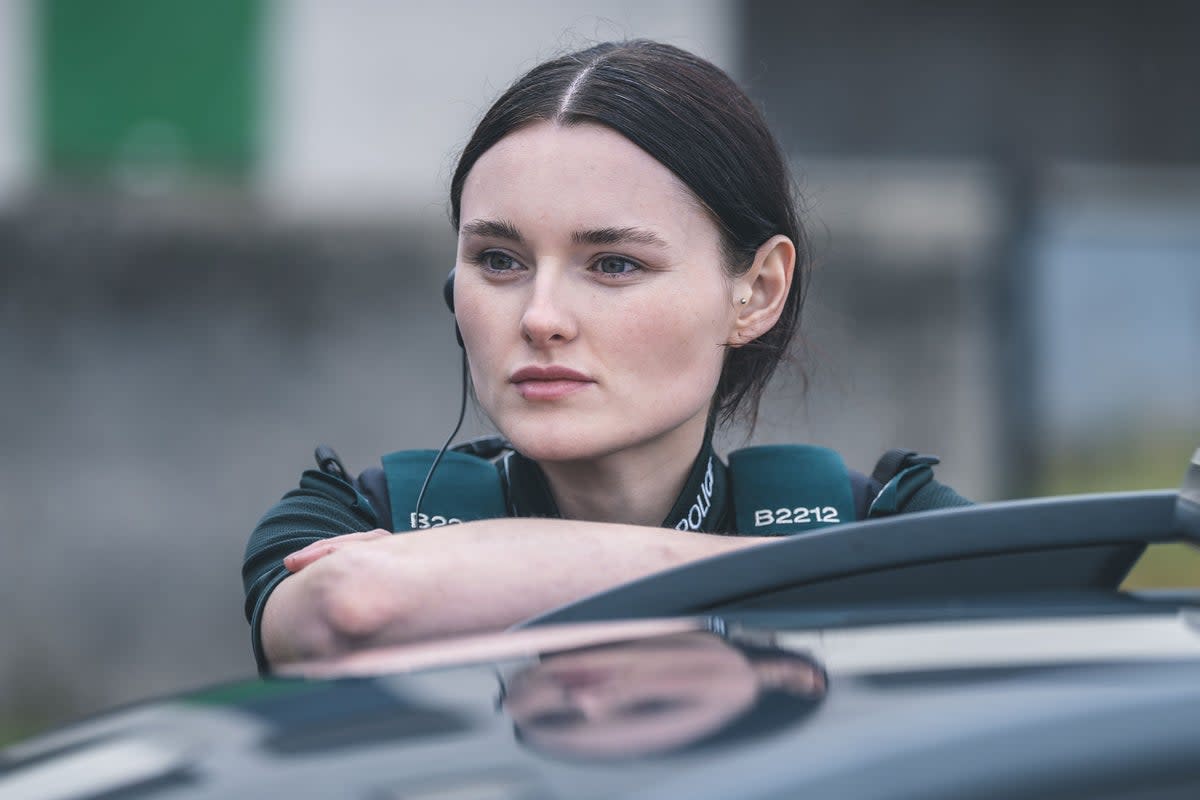Blue Lights review: Series two may be first rate, but there are still too many police dramas on TV

Some people fancy they could provide emergency medical care, simply by dint of watching Casualty for many years. Others – enthusiasts of The Bear, perhaps – believe they could run a Michelin-starred kitchen. But there’s no profession which has inspired quite as much armchair punditry as police work. And Blue Lights, the BBC’s Belfast-set saga, knew that, taking viewers right back to the beginning and throwing them in the deep end with a bunch of know-nothing new recruits.
A year or so on from the events of Blue Lights’s first series, our three protagonists are no longer quite so fresh to the scene. Grace (Siân Brooke) and Annie (Katherine Devlin) are living together and both dealing with complicated workplace situationships. Tommy (Nathan Braniff) meanwhile, is dealing with his own intramural flirtation, meeting Aisling (Dearbháile McKinney) for regular fry-up dates at a rest-stop between Belfast and Derry. Which makes the show sound all very romantic, except for the fact that drug offences are on the rise in the capital, along with a resurgence of violence between loyalist groups. With the police force already stretched to breaking point, will the fragile peace in Belfast start to fray?
A turf war is initiated by Lee (Seamus O’Hara) the beleaguered owner of a bar, The Loyal Pub, which sends the sirens screeching and the local underworld into a cycle of attack and revenge. The intricacies of what proceeds from there are, at times, hard to follow – one thug looks very much like another – but time after time, armed police are called to deal with the escalating threat. “Don’t start something we can’t finish,” a senior officer tells the assembled troops; “don’t hold back though,” another adds. “Well, that’s crystal clear,” Stevie (Martin McCann) observes.
Where Line of Duty was set in some consciously anonymous metropolis – a sort of nightmare vision of life in Midlands suburbia – Blue Lights is deeply invested in a sense of place. Belfast, and Northern Ireland, loom as characters in Declan Lawn and Adam Patterson’s vision. It is a city still wrenched by division, where marching bands come out in funeral processions, and where the ghost of the late-20th century still lurks. The generational spectre of violence hangs over the area: the elderly remember losses of the past, adults struggle to deal with the present moment, and children get their first taste of future violence. A bleak vision, certainly, but altogether more distinctive than Jed Mecurio’s sprawling Incognitoville.
All the same, it’s hard not to feel a bit tired by the sheer predominance of organised crime narratives on British television, not least when British streets feel so dominated by a conspicuously disorganised crime. Blue Lights features its protagonists breaking up protection rackets, foiling assassinations, and investigating gangland reprisals, rather than – you know – trying to get a group of teenagers to stop harassing the poor bloke who guards the vapes in Tesco. “There’s gonna be war now,” Mags (Seána Kerslake), co-owner of the pub at the centre of the tensions, growls. The stakes are high, you see, not least because that’s what the conventions of the modern cop drama demand.
At times, it feels like all these shows – The Responder, Bloodlands, The Fall, The Tower – exist in a multiverse. There are variations on style and setting but they cohabit a world, harnessing the moral binary of cops and robbers. Sure, sometimes the police do things that are a bit criminal, but the line is always drawn. Cop on one side, robber on the other. It is, perhaps, why the first series of Blue Lights almost entirely eschewed the – far from black and white – issue of sectarian violence. “That’s the thing about this place,” Happy (Paddy Jenkins) tells newly qualified solicitor Jen (Hannah McClean). “Even after all these years, people think the truth is dangerous.” It’s hard not to feel, then, like Blue Lights would be a more distinctive and ambitious, show if it were slightly less preoccupied with regurgitating pre-existing tropes.

But as generic fare goes, Blue Lights is of the highest order. The acting and writing is first rate, and Brooke, particularly, is a terrific leading lady. If the show lacks the narrative thrust to attract new viewers, it will undoubtedly satisfy those who were already invested in Grace, Annie, and Tommy’s progression through the ranks of the constabulary. But in a genre begging for fresh ideas, you have to try a little harder to stand out.


